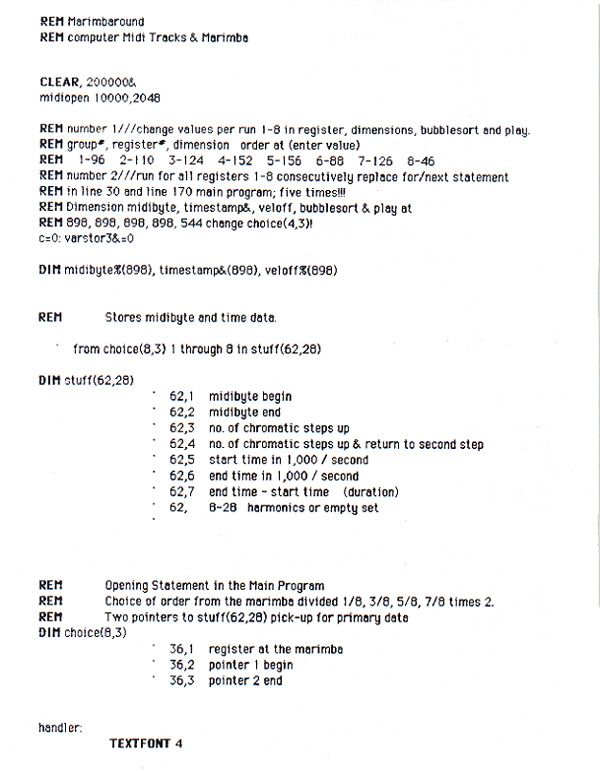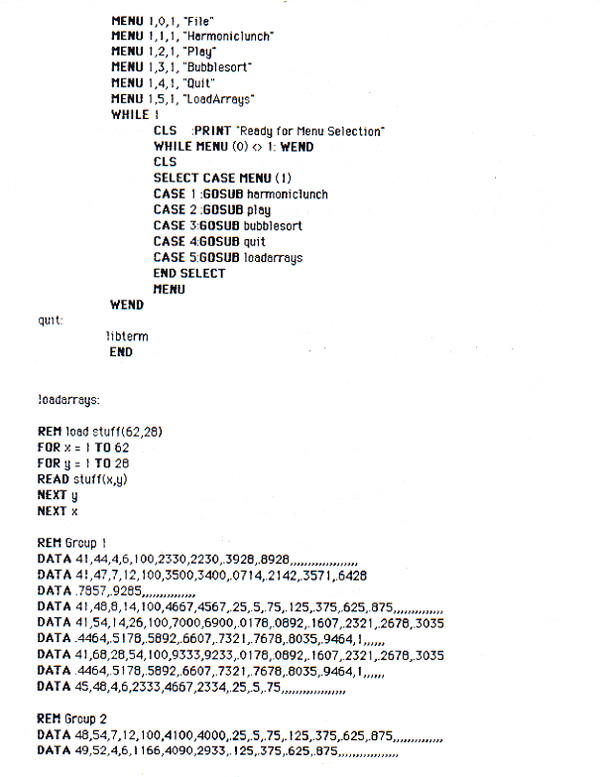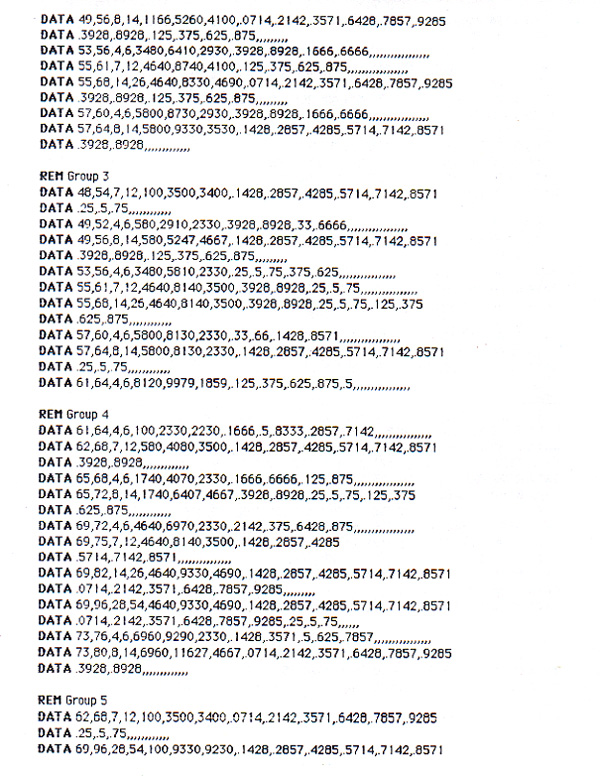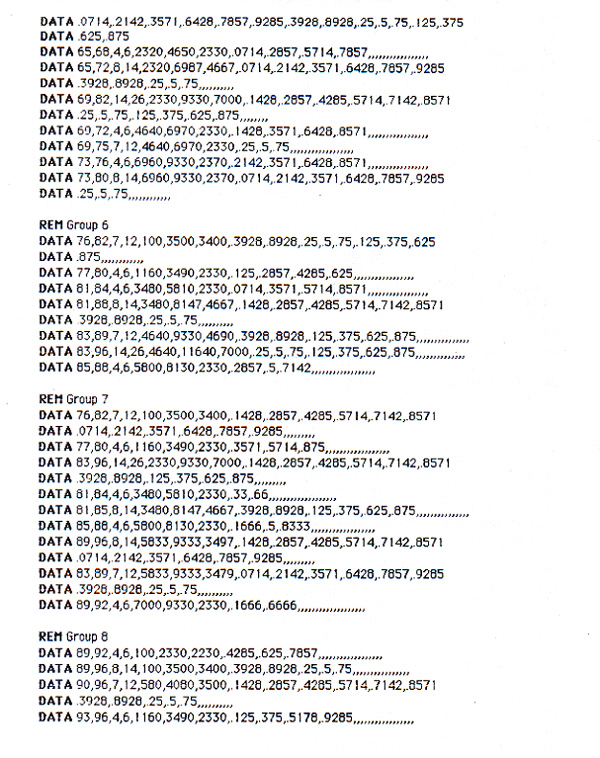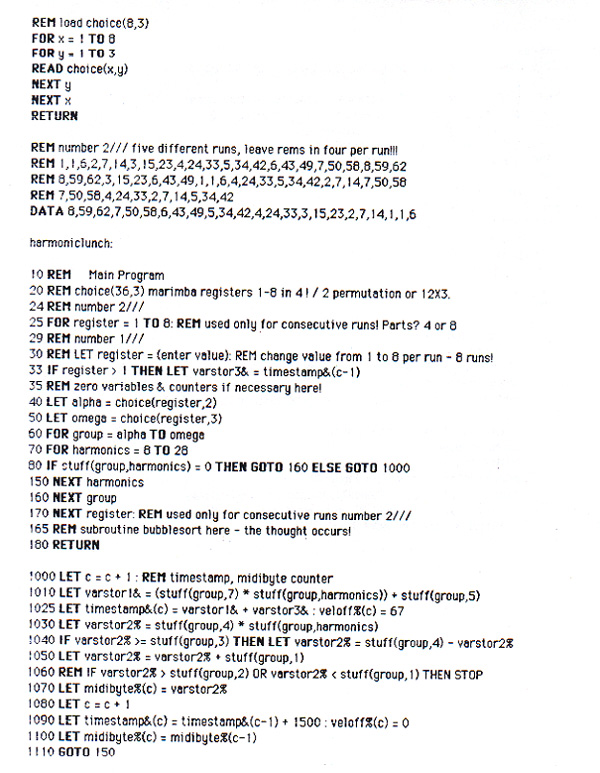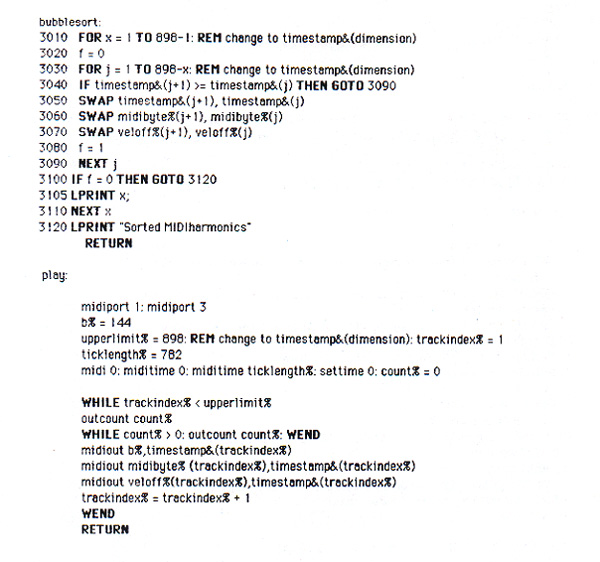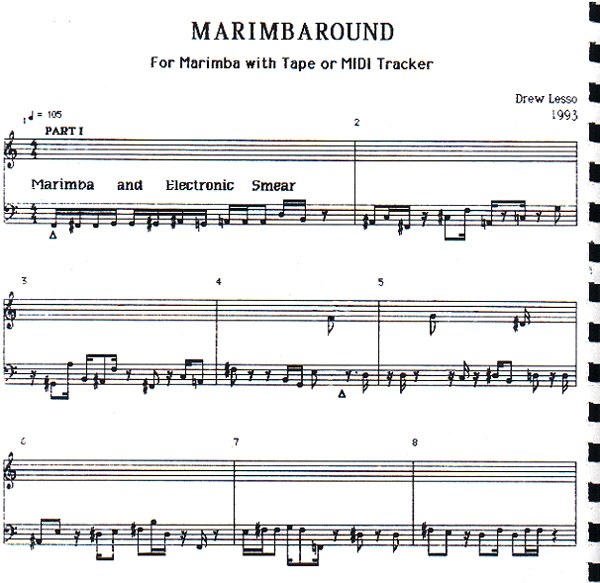Marimbaround
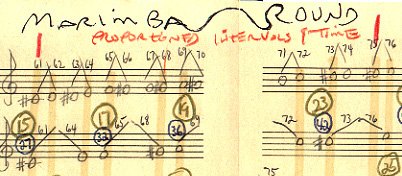
Marimbaround 1991, 7.09 min
Marimbaround is a result of my work in the field of Harmonics as described by German theoretician Hans Kayser. In the early seventies I was introduced to his global theories of ratio and proportion. Since then I have integrated Harmonics into my compositional process.
In this work the harmonics are derived by dividing the range of a marimba into 62 segments from 1/2 to 1/14. l have an image of the harmonic segments represented by colored spinning discs divided into chromatic sectors annunciated with tone then starting and stopping in a rapid passage of time. I wrote an algorithm to fit my imagination. The algorithm produced the work in 3 sections. The time element is microtemporal in the sampled electronic version and was later scored in traditional notation. I altered the tempo globally for each section, therefore also the time algorithm, according to how I was feeling about what I was hearing. Remember the ears have it! I read an interview with John Cage talking about the composition of HPSCHD where he said, ' this work that goes into the subroutine gives it the character that, I think, chords had for composers in the past'. I was elated because while musical ideas accumulate effortlessly much of the algorithmic process is executed in silence.
Marimbaround is written for live marimba with taped accompaniment that mimics the marimba score. The taped part contains two types of sounds. One is a FM electronic smear and the other uses additive synthesis.
In this work the harmonics are derived by dividing the range of a marimba into 62 segments from 1/2 to 1/14. l have an image of the harmonic segments represented by colored spinning discs divided into chromatic sectors annunciated with tone then starting and stopping in a rapid passage of time. I wrote an algorithm to fit my imagination. The algorithm produced the work in 3 sections. The time element is microtemporal in the sampled electronic version and was later scored in traditional notation. I altered the tempo globally for each section, therefore also the time algorithm, according to how I was feeling about what I was hearing. Remember the ears have it! I read an interview with John Cage talking about the composition of HPSCHD where he said, ' this work that goes into the subroutine gives it the character that, I think, chords had for composers in the past'. I was elated because while musical ideas accumulate effortlessly much of the algorithmic process is executed in silence.
Marimbaround is written for live marimba with taped accompaniment that mimics the marimba score. The taped part contains two types of sounds. One is a FM electronic smear and the other uses additive synthesis.
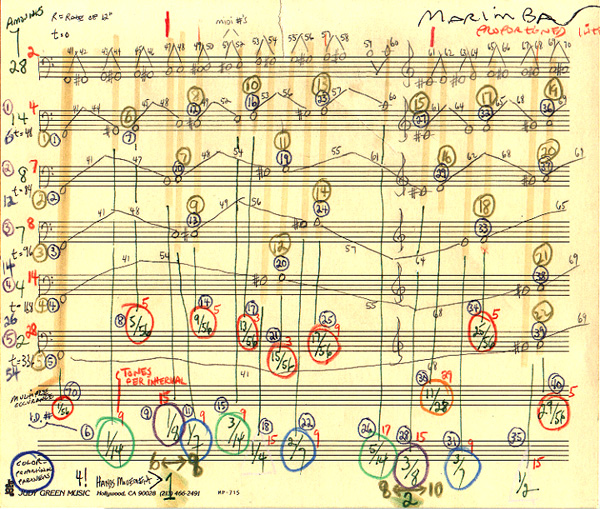
Division of the Marimba, left side.
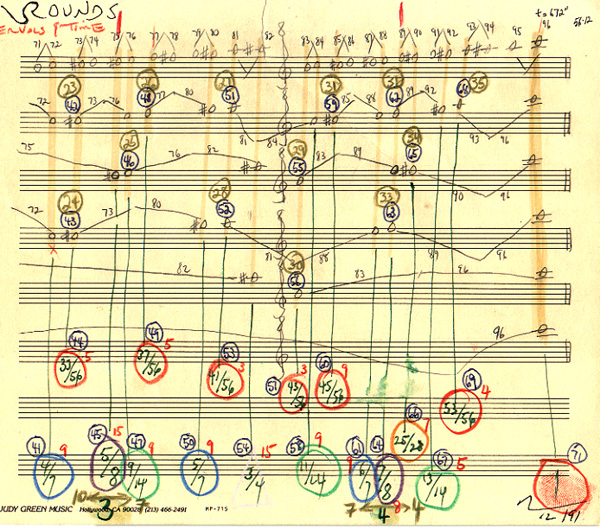
Division of the Marimba, right side.
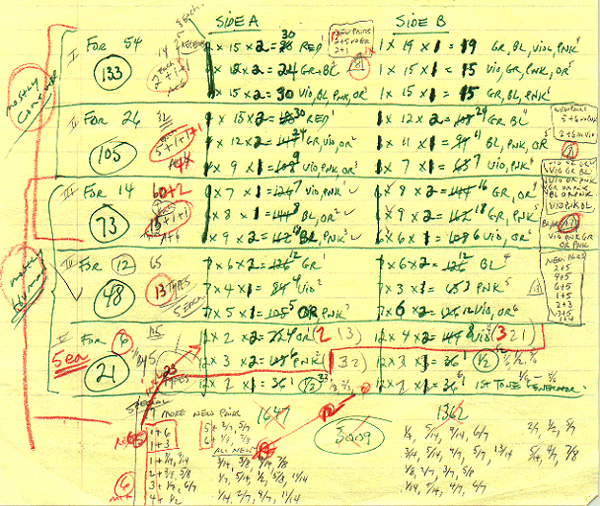
Number of divisions per section.
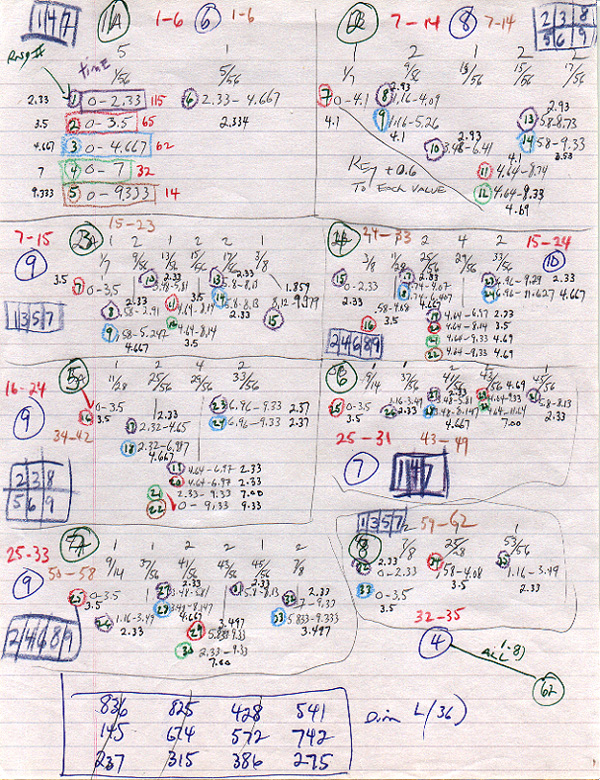
Time elements per section.
